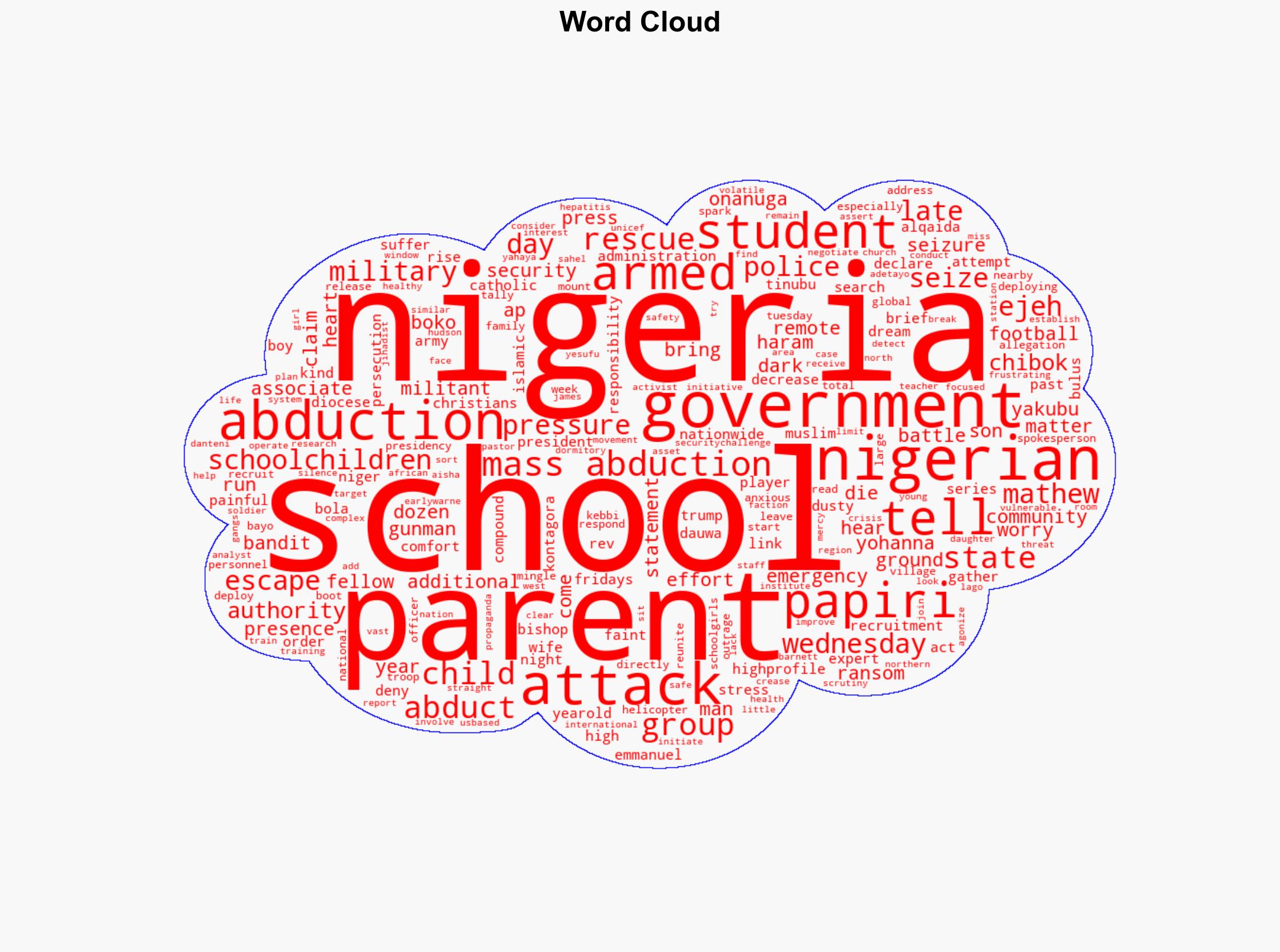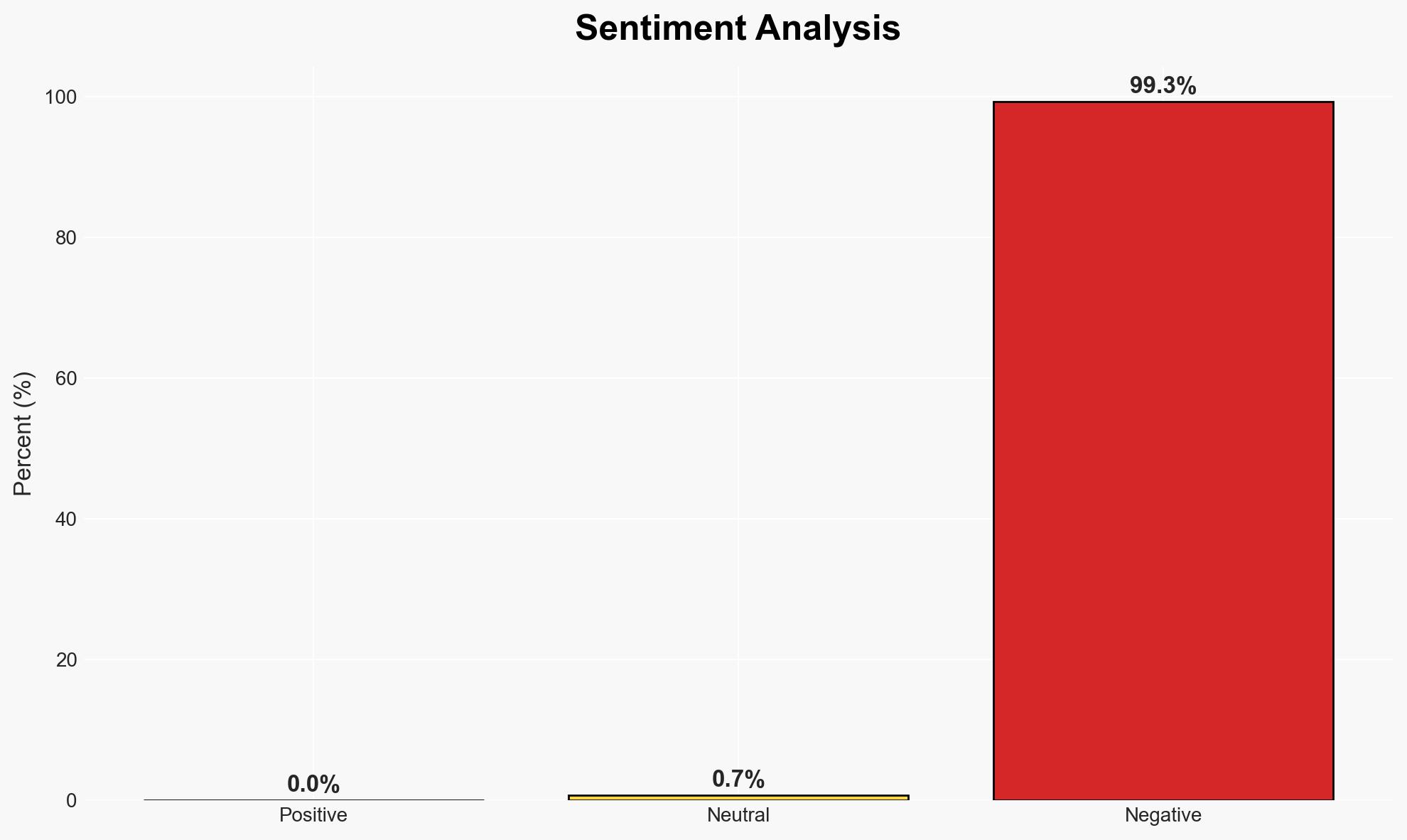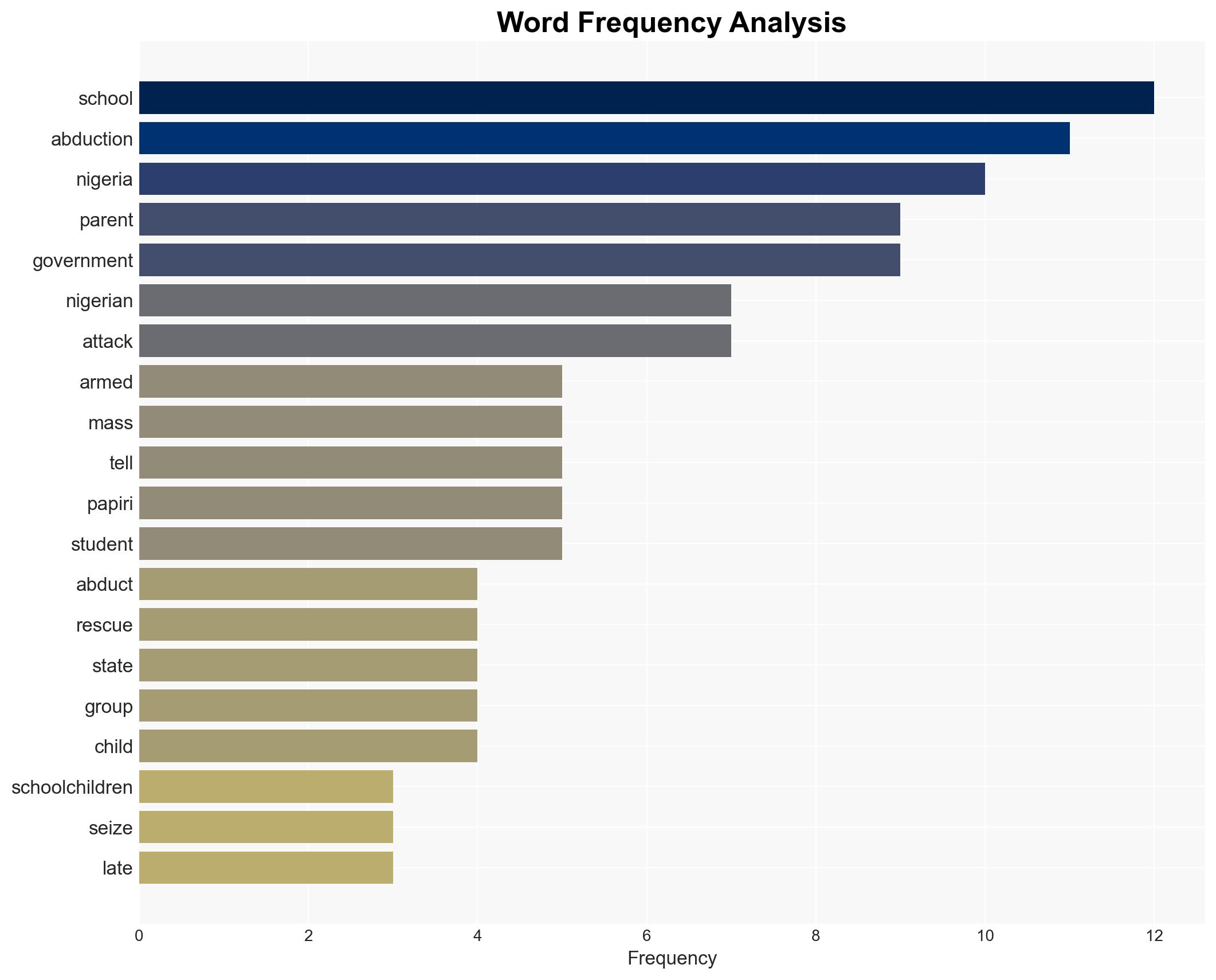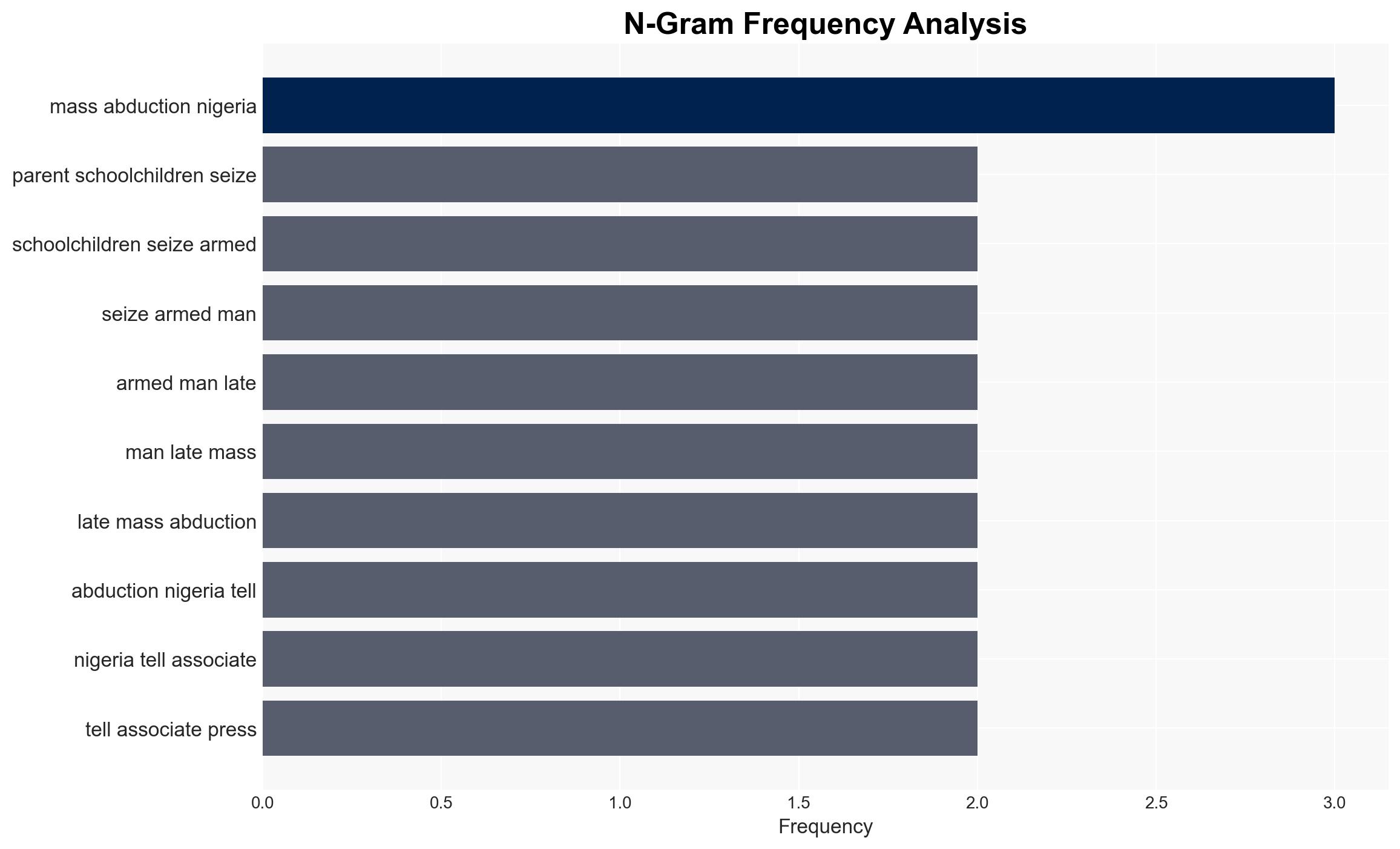Nigerian parents express frustration over lack of information on kidnapped schoolchildren’s rescue efforts
Published on: 2025-11-26
AI-powered OSINT brief from verified open sources. Automated NLP signal extraction with human verification. See our Methodology and Why WorldWideWatchers.
Intelligence Report: Nigerian parents say they are kept in the dark over abducted schoolchildren
1. BLUF (Bottom Line Up Front)
The recent abduction of schoolchildren in Nigeria highlights ongoing security challenges and the government’s inadequate communication with affected families, leading to increased public distress. The most likely hypothesis is that armed groups are leveraging these abductions to pressure the government for ransom or political concessions. This situation affects local communities, national security, and international perceptions of Nigeria’s stability. Overall confidence in this assessment is moderate due to limited direct evidence and potential biases in reporting.
2. Competing Hypotheses
- Hypothesis A: Armed groups are conducting abductions primarily for financial gain through ransom demands. This is supported by the history of similar incidents and the lack of ideological claims by the perpetrators. However, the absence of clear communication from the abductors introduces uncertainty.
- Hypothesis B: The abductions are politically motivated, aiming to destabilize the region and challenge the government’s authority. This is supported by the timing of the attacks and the government’s declaration of a nationwide security emergency. Contradicting this is the lack of explicit political demands from the abductors.
- Assessment: Hypothesis A is currently better supported due to the pattern of past abductions for ransom and the absence of political demands. Key indicators that could shift this judgment include any future political statements from the abductors or changes in their operational patterns.
3. Key Assumptions and Red Flags
- Assumptions: The abductors are motivated by financial gain; the government has limited control over remote areas; communication from the government is accurate but incomplete.
- Information Gaps: Specific demands from the abductors, details of government rescue efforts, and the identity and motivations of the armed groups involved.
- Bias & Deception Risks: Potential bias in reporting due to emotional distress of parents and possible government manipulation of information to downplay security failures.
4. Implications and Strategic Risks
The continuation of school abductions could exacerbate regional instability and erode public trust in government security measures. If not addressed, this could lead to increased international scrutiny and pressure on Nigeria.
- Political / Geopolitical: Potential for increased international criticism and pressure on Nigeria to improve security measures.
- Security / Counter-Terrorism: Escalation of armed group activities and potential for increased recruitment by extremist organizations.
- Cyber / Information Space: Potential for misinformation campaigns to exploit public fear and undermine government credibility.
- Economic / Social: Negative impact on education and community stability, potentially leading to long-term socio-economic challenges.
5. Recommendations and Outlook
- Immediate Actions (0–30 days): Enhance intelligence gathering on armed groups, improve communication with affected families, and increase security presence in vulnerable areas.
- Medium-Term Posture (1–12 months): Develop community resilience programs, strengthen regional security partnerships, and invest in counter-terrorism capabilities.
- Scenario Outlook:
- Best: Successful rescue operations and improved security measures lead to a decline in abductions.
- Worst: Continued abductions and government inaction result in widespread instability and international intervention.
- Most-Likely: Sporadic abductions persist, with gradual improvements in security and government response.
6. Key Individuals and Entities
- Nigerian President Bola Tinubu
- Emmanuel Ejeh (Parent of abducted child)
- Rev. Bulus Dauwa Yohanna (Bishop of Kontagora Diocese)
- Bayo Onanuga (Nigerian Presidency spokesperson)
- Not clearly identifiable from open sources in this snippet for the armed groups involved.
7. Thematic Tags
Counter-Terrorism, This brief is tagged under: counter-terrorism; national security threats; regional instability; hostage situations; government communication challenges
Structured Analytic Techniques Applied
- ACH 2.0: Reconstruct likely threat actor intentions via hypothesis testing and structured refutation.
- Indicators Development: Track radicalization signals and propaganda patterns to anticipate operational planning.
- Narrative Pattern Analysis: Analyze spread/adaptation of ideological narratives for recruitment/incitement signals.
Explore more:
Counter-Terrorism Briefs ·
Daily Summary ·
Support us





